OR63 Online: Creating a better future
15 September 2021
Connecting OR professionals from across the world to collaborate and solve problems
The Making an Impact sessions involve tutorials, seminars, workshops and other activities with a strong interactive and practical element. We packed the day with sessions aimed at helping everybody to become more successful in making an impact in their work.
There are sessions aimed at helping you to use virtual white boards more effectively in meetings and teaching, formulate and build optimization models, run code examples using RStudio Cloud, how to develop a successful EPSRC grant application, plus much more.
Until we begin Making an Impact at OR63: 15 September 2021

Throughout Wednesday we have a series of interactive sessions. Expand each section to find out more about each of the Making an Impact sessions.
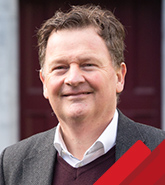
11:00 | Wednesday 15 September 2021
The R programming language provides a flexible framework for supporting system dynamics modelling.
In particular, R now contains a suite of libraries, collectively known as the tidyverse, that are specifically designed to process rectangular data, which is highly structured data with rows as individual observations, and columns containing variables. Many of the tidyverse libraries provide quick and efficient ways to process rectangular data, including importing data from external sources (e.g., comma-separated files), summarising and aggregating observations (frequency counts, summary functions) and visualising large datasets.
This workshop demonstrates how R can be integrated with system dynamics modelling. It will present a summary of the tidyverse, and key tools such as ggplot2, dplyr and purrr, and show how they can be used to process rectangular data (e.g. simulation output). It will then present three case studies of using R to support system dynamics modelling, specifically: (1) using the R library deSolve to run system dynamics models; (2) using the package readsdr to convert XMILE files to deSolve functions; and (3) using purrr tools such as map to process large simulation data sets (e.g. from many simulation runs).
The workshop format will be interactive, and participants will be able to run the code examples using RStudio Cloud.
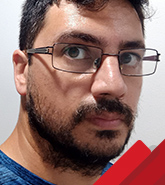
15:30 | Wednesday 15 September 2021
In this talk, we will discover IBM's Cloud Pack for Data (CP4D), an online platform that integrates the development, deployment, analysis and automation of AI/ML models. In particular, we will focus on the integration of IBM's optimization suite, CPLEX Optimization Studio, with this platform. We will discuss the main differences between CP4D and a traditional work environment, and highlight the multiple advantages of transitioning toward this new platform for businesses and data analysts.
We will introduce the audience to some of the most basic tools required for the integration of CPLEX with CP4D, namely:
Watson Studio: a desktop platform that integrates development and collaboration tools
Watson Machine Learning: a platform to deploy models (AI/ML/ OR)
OPL: IBM's modeling language
By means of a few remarkable examples, we will walk the audience through the experience of setting up the different environments, formulate and build optimization models, and submit jobs to the cloud environment to solve them. We will also make use of a few visualization tools to analyze the results obtained by our models.
In this talk, the audience is assumed to be familiar with the most basic concepts of linear, mixed-integer and nonlinear optimization.
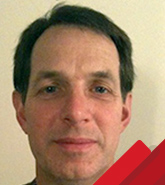
09:30 | Wednesday 15 September 2021
The COVID-19 epidemic required a nimble, iterative approach to exploring the actual and potential impact on hospital and community resources. WSPs work in the Kent & Medway System during 2020 and now across the South East Region has had to deal with the passage of the first wave in the spring of 2020, the emergence of the Kent Variant in the Autumn of 2020, the contribution that the vaccination programme has made and most recently to the emergence of the Indian Variant.
By the time of the conference there will be plans for booster jabs and perhaps other variants of concern to understand and model. This session will provide an opportunity for participants to learn from the past and apply this to understanding how the changing COVID picture has been modelled and has informed local planning. It will be an interactive session with opportunities for contributions from participants, using the model to explore and understand how national policy and population behaviours have contributed to the passage of the pandemic.
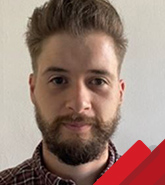
11:00 | Wednesday 15 September 2021
The world has changed a lot since COVID-19 emerged in 2019 and there have been many problems Operations Research techniques have helped solve. As new problems emerge Simul8 consultants and users have been building models to contribute towards answering many of these key questions.
The first half of this workshop will focus on showing some of the new modelling techniques that have been used to develop these simulations including the use of hybrid modelling and self building and self adapting simulations. Participants will get the opportunity to gain new ideas for building simulations and potentially learn some new techniques from new software features.
There will be multiple simulations shared. The first simulation was built to help healthcare providers understand how many ventilated ICU beds were required to be able to save lives, using nationally available data. The second set of simulations were built to help understand how to best test and vaccinate a population, which has been an issue that has been solved slightly differently in different geographical areas. Most recently our attention has turned to understanding how we recover from the impacts of COVID-19 and we are especially focusing on reducing elective patient waiting lists, especially as waiting lists have grown to such a high level making waiting times for procedures dangerously high, this will be the final simulation shared.
In the second half of the workshop a live game will be played where participants will be challenged to get the best result possible when reducing waiting lists for various elective care procedures using a simulation as a gaming platform. Participants will work in teams and will require no Simul8 knowledge to be able to play and try to meet those all-important NHS targets.

15:30 | Wednesday 15 September 2021
Prior to the 2021 lockdown, many of us were familiar with online communication tools such as Zoom and Microsoft Teams but had probably used these mainly for routine meetings. With lockdown came the challenge of how to design and run collaborative workshops and training sessions online. Having explored the options, my chosen tool is Miro Whiteboard, and in this session I’ll explain why and how it can be used.
Session content:
During the workshop, which will be run in Miro, you will have a hands-on opportunity to see how the tool can be used in practice. The session will cover:
Who’s it for?
The session will be of interest to internal and external consultants/facilitators, plus anyone who needs to lead a problem solving, innovation or performance improvement session.
Timing:
45-60 minutes.
Prerequisites:
To participate in the session, you will need to join the workshop Miro Board as an anonymous Guest in a browser (Microsoft Edge or Google Chrome). You do not need to have a Miro account.
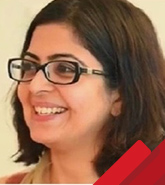
03:30 | Wednesday 15 September 2021
Polarisation of views and the resulting divisiveness has amplified the need for tolerance and acceptance of our differences, urgently requiring us to create 'safe' spaces that enable synergistic dialogue. It is this safety and freedom of expression that ‘circle work’ attempts to provide.
In this two-part workshop, participants will:
a) Understand the rationale for ‘circle work’ and gain an insight into its various benefits (1 hour followed by a short break)
b) Experience first-hand the nuances of creating a safe space in the context of gender inclusivity (2 hours)
While Part I of this workshop will be delivered in a presentation format and will be used to share a broad framework of circle work with participants, the interactive nature of the Part II of this workshop will require participants to be present throughout the duration of the session, in a quiet, uninterrupted space with their videos ON. In order to create a safe environment, this session will not be recorded.
This session will be facilitated by a diverse team that includes OR and gender equity professionals. The session is divided into three components:
A) Context Setting and introduction to community agreements, followed by an experiential witnessing process designed to raise mutual awareness of diverse gender experiences and perspectives within the OR professional community and beyond.
B) Three breakout sub-circles for (a) male, (b) female, and (c) non-binary/gender fluid, will meet in separate breakout rooms to explore key insights and address their particular perspectives that arose during the witnessing exercise.
C) All circles will again reconvene to harvest the key learnings from each of the sub-groups to address the systemic insights and implications for the OR community. We will conclude with a brief exploration of ways to build on what has been learned for the future.
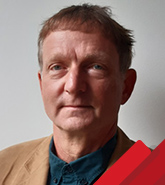
09:30 | Wednesday 15 September 2021
While the COVID-19 pandemic caused death and disruption, it also exposed underlying tensions & conflicts, along with social innovation & mutual aid. To avoid the worst & make the best of future opportunities, the practice of Foresight is crucial. An emerging Foresight 3.0 model looks beyond ‘problem fixing’, towards systems transformation via collective intelligence, which can turn crisis into opportunity.
With this we can map the deeper layers of the pandemic effect (social, technical, economic, ecological, political, cultural, etc): and the wider communities involved (public, private, civic, individual etc). An emerging Pandemonics 3.0 looks at how to enable the ‘collective pandemonic intelligence’ which connects all parts of society, in a process of co-learning and co-production.
This workshop is a path-finding exploration on the collective intelligence of participants. We aim to compare different perspectives on the problems & solutions, with different methods & tools. Then we reach towards common ground, with a cognitive systems thinking perspective. Finally we aim for a tangible ‘white paper’ output for further development.
Methodology: based on the Synergistic ‘4-S’ method with visual systems thinking, & focus on collective systemic intelligence (combining methods such as SSM, ANT, PSM, CLA, ALS etc): now in development with the Laboratory for Collective Intelligence (https://sites.manchester.ac.uk/synergistics/collaboratorium/ )
Beforehand: participants will be asked to prepare 2 slides for the whiteboard: their view of the problem, and ideas for ways forward, with a focus on methods & tools.
Platforms – we use an innovative 1-2-3D combination:
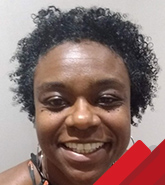
15:30 | Wednesday 15 September 2021
We want to share the importance of combining the emergent approach of awareness-based systems change, with the conventional model-based systems change, and present practical ways of doing so by sharing examples from our work.
Recently, we got into a discussion over how we could make sure that our systems change methodology incorporates issues of power relations and other socio-economic factors of diverse stakeholders, who are both affected by, as well as affect a system of interest.
After hearing out diverse perspectives, and some of us also sharing our lived experiences of applying systems thinking for solving issues such as COVID action or climate change, we came to a consensus that unless we consider the lived realities and incorporate diverse voices existing within a system (notwithstanding who commissions a project and/or for what purpose) initiatives for systems change end up “reaffirming” the systems, and not so much “transforming” them. In other words, we need to guard against abstract model building that is devoid of context. Hence, we want to revisit some of the best practices in conventional systems thinking and redesign them. By engaging participants in a few activities, we want to give them a flavour of grounding systems change using an empathetic “first- and second-person lens” approach, and share some examples from our work.
This session will provide insights into:
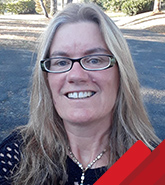
15:30 | Wednesday 15 September 2021
See the Systems is a new education initiative aimed at bringing the value of systems action to strengthen communities around the world.
Teams will compete from schools and other associations to map systemic issues within their local communities, design /prototype proposed solutions, and validate / implement their ideas while measuring the resulting qualitative and quantitative impacts.
Participants will partner with experienced mentors, systems/OR practitioners, and consultants from organizations such as the Operational Research Society, the International Council for Systems Engineering and STEM UK, while actively sharing their insights via social media and other platforms.
The prize structure will reward activities sustaining long term positive benefits. Entries will be judged on ingenuity, leverage, people engaged, and quality of evaluation.
See the Systems aims to empower young people with the tools and agency to make a real difference to our world.
Find out more about the program here: http://kerry.tries.fed.wiki/view/see-the-systems-partners
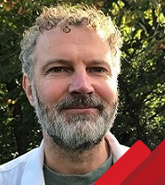
09:30 | Wednesday 15 September 2021
We have invited MSc/PhD students to present posters on their research and practical projects which will be combined with other posters showcasing their practical use of OR. Each of the presenters will be given a 3-minute window to highlight what makes their work special.
This will be followed by the opportunity to talk to the poster presenters in their own online space before and after the President’s Medal presentations.
Posters will be on display through the conference app as well as on the Making an Impact day.
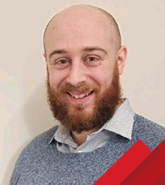
15:30 | Wednesday 15 September 2021
Developing an EPSRC research proposal can be quite a challenging task, considering the different elements involved in the process. The aim of this session is to provide a brief overview of the process and discuss key steps to take into account in order to increase your chances to get funded.
Considering the fact that many applicants often find it very difficult to incorporate impact in their proposals, a special attention will be given to this topic during the session, while highlighting the EPSRC’s new requirements to successfully demonstrate the pathways to impact in your bid.
The session is intended to be hands-on and interactive, with the EPSRC’s Portfolio Managers in charge of Operational Research and Impact, as well an academic who has been successful at winning grants from the organization.
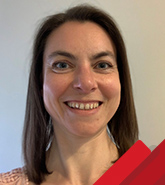
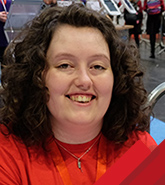
09:30 | Wednesday 15 September 2021
Find out about using your OR skills to inspire young people and contribute to something of societal importance.
We’ll give you an overview of the OR in Education and Pro Bono OR programmes. Take part in a hands-on activity to get a feel for what volunteering for both of the schemes entails. We’ll present a problem to you the way we would present a school resource, and give you tips on how you could do this in a classroom. Once you’ve solved the problem you will present your results back to us as if you’d done the project for a charity.
Come along to ask questions and learn about the benefits of volunteering for your own wellbeing and career development, as well as giving something back to society.
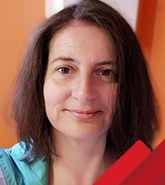
11:00 | Wednesday 15 September 2021
This session will provide a short overview of the OR Society's a (ORS) activities on Equality, Diversity & Inclusion (EDI). This includes it's strategy, developing programme of work and it's recent diversity maturity assessment. The latter forming part of the Society's committment to the Science Council on EDI; the ORS "will proactively promote a culture of EDI within our discipline".
The larger aspect of the conference session will be interactive and participants will have an opportunity to provide input to the developing EDI programme as well as share insights into how inclusive members and non-members feel the ORS is. The high-level outputs will feed into the Society's EDI work.
We are keen to hear from a diverse set of participants. Please do come and join us and contribute to the OR Society's EDI journey.
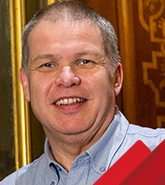
15:30 | Wednesday 15 September 2021
The OR Society is part of the Alliance for Data Science Professionals, and is working towards setting some professional standards for people working with data. This workshop will introduce the alliance, its work so far and plans for data science standards. This is your chance to influence what the standards look like, how certification might be implemented and how you’ll be able to get your data science skills recognised.
In July 2020, a group of UK professional bodies and a government laboratory announced their intention to establish industry-wide professional standards for data science to ensure an ethical and well-governed approach so that the public can have confidence in how data is being used. Since then, the group has formalised its operation as the Alliance for Data Science Professionals. The initial members of the Alliance are the Royal Statistical Society, BCS, The Chartered Institute for IT, the Operational Research Society, the Institute for Mathematics and its Applications, the Alan Turing Institute and the National Physical Laboratory. The Alliance is supported by the Royal Academy of Engineering and the Royal Society.
The Alliance plans to:
The Alliance is governed by a memorandum of understanding.
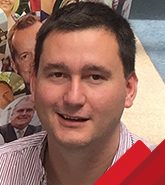
11:00 & 15:30 | Wednesday 15 September 2021
The world meets again.
All eyes on Glasgow as the UK hosts the UN Climate Change Conference of the Parties (COP26) on 1 – 12 November 2021. Bringing together parties to accelerate action on climate in what is known as our final decade to act.
We are faced with the greatest challenge of all – to preserve a livable climate, that all life depends on. To do so, greenhouse-gas emissions must be reduced to net zero by 2050. ‘We’ are in a race, all of us, to transit to a low-carbon economy – it’s not going to be easy. Didn’t Kermit the frog sing “it’s not that easy to be green”?
We have three challenges this year:
Learn more about the challenges here

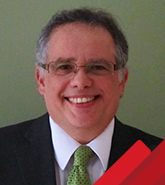
John Medhurst,
Larrainzar Consulting Solutions Ltd
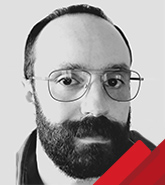
Stefano Coniglio,
University of Southampton

Siôn Cave,
DAS Ltd
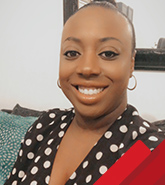
Tatty (Tahirah McIntosh),
The OR Society